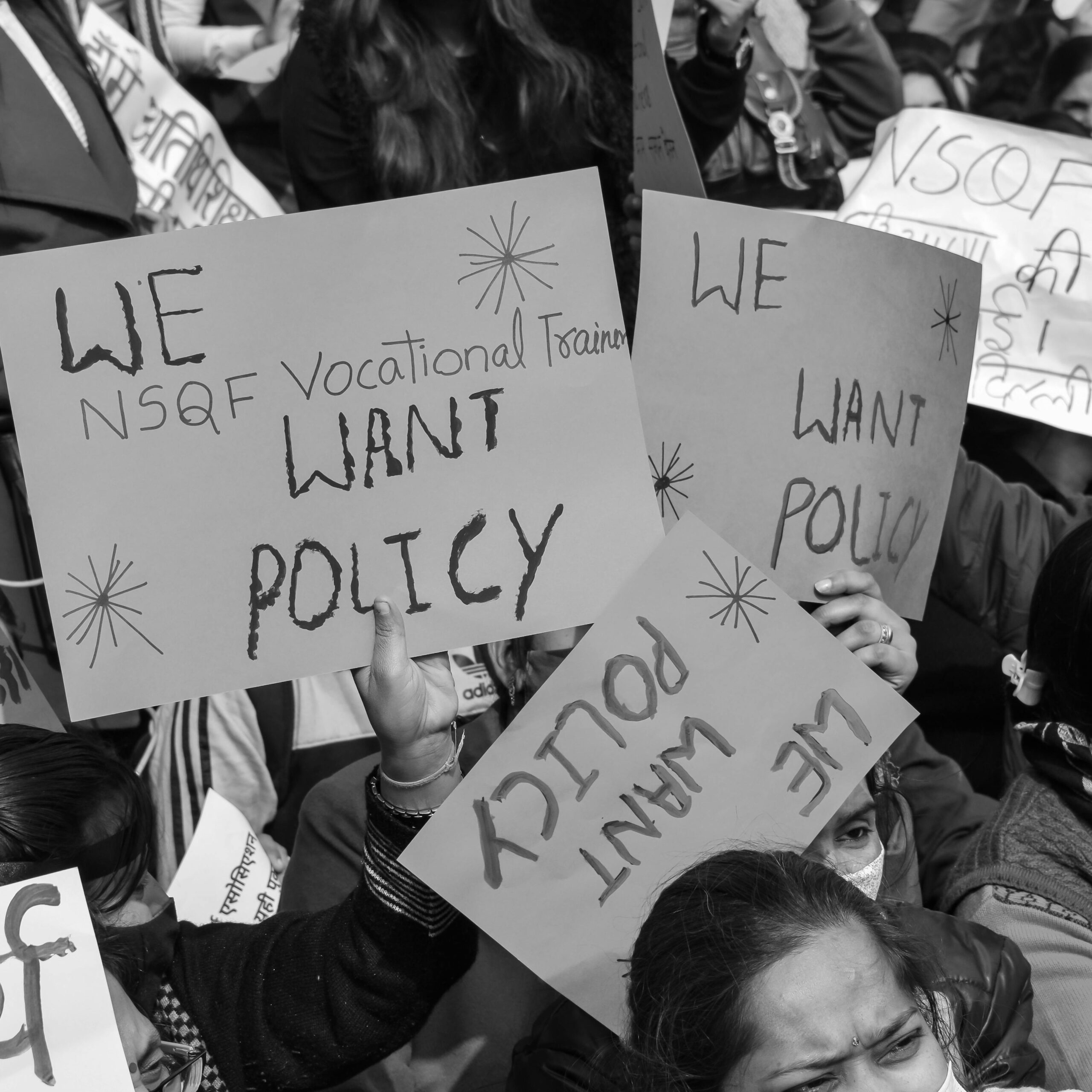
The Impact of Economic Policies on Democratic Practices in India
Exploring the Nexus Between Governance, Economic Decisions, and Democratic Outcomes
Key Highlights:
- Economic Inequality: India’s top 10% control 77% of the nation’s wealth, raising concerns about democratic inclusivity (Oxfam Inequality Report, 2024).
- Government Spending: Social welfare schemes accounted for 8.6% of GDP in 2024-25, reflecting the interplay between economic policy and citizen welfare (Union Budget, 2024).
- Job Creation: Economic reforms have created 8.5 million formal jobs annually over the last five years, but informal employment remains over 80% of the workforce (Ministry of Labour and Employment, 2024).
- Public Participation: Voter turnout in economically marginalized regions averaged 58% in 2024, compared to 68% in wealthier states (Election Commission of India, 2024).
Introduction
Economic policies and democratic practices are deeply intertwined, shaping governance, public participation, and societal outcomes. In India, a mixed economy fosters market-driven growth alongside welfare-oriented initiatives. However, economic decisions often raise questions about their alignment with democratic ideals, especially in terms of equity, inclusivity, and citizen engagement. This article examines how India’s economic policies influence its democratic practices, highlighting both achievements and challenges.
Economic Policies That Strengthen Democratic Practices
1. Welfare Schemes and Citizen Empowerment
Economic policies aimed at reducing poverty and inequality directly impact democratic participation by empowering marginalized communities:
- MNREGA (Mahatma Gandhi National Rural Employment Guarantee Act): Provided over 3.5 billion person-days of work in 2024, improving rural livelihoods and fostering political awareness (Ministry of Rural Development).
- Direct Benefit Transfers (DBT): ₹4.5 lakh crore disbursed to beneficiaries under DBT schemes in 2024 reduced leakages and strengthened trust in governance.
- Food Security: Subsidized food grains under the National Food Security Act (NFSA) reached 80 crore people in 2024, promoting social equity.
2. Economic Reforms and Political Stability
Policies that stimulate economic growth also contribute to political stability by enhancing public trust in governance:
- Goods and Services Tax (GST): Introduced in 2017, GST streamlined India’s taxation system, increasing transparency and boosting tax revenue by 12% annually (Central Board of Indirect Taxes and Customs).
- Production-Linked Incentive (PLI) Scheme: Attracted ₹3 lakh crore in investments in 2024, creating employment opportunities and reinforcing faith in the government’s development agenda (NITI Aayog).
3. Inclusive Growth and Voter Engagement
When economic policies address regional disparities, they encourage higher voter turnout and democratic engagement:
- Aspirational Districts Programme: Targeting underdeveloped regions, this initiative improved HDI metrics by 15% in 112 districts by 2024 (Ministry of Home Affairs).
- Infrastructure Development: Rural electrification under schemes like Saubhagya has reached 99% of households, enhancing connectivity and political awareness.
Economic Policies That Challenge Democratic Practices
1. Growing Economic Inequality
Despite welfare initiatives, rising income disparities hinder democratic participation:
- Wealth Concentration: India’s Gini coefficient stands at 0.48, reflecting significant income inequality. This undermines the principle of equal representation in a democracy (World Bank, 2024).
- Urban-Rural Divide: Urban areas receive 70% of public investments, leaving rural communities underserved and politically alienated (NITI Aayog, 2024).
2. Privatization and Public Accountability
Economic liberalization has boosted growth but raised concerns about corporate influence on democratic processes:
- Privatization Drive: The sale of public sector units like Air India generated ₹1.5 lakh crore in 2024, but critics argue it prioritizes profit over public welfare.
- Corporate Donations: Electoral bonds introduced in 2018 lack transparency, with 90% of funds in 2024 going to ruling parties, raising questions about democratic fairness (ADR Report, 2024).
3. Policy Gaps in Employment
Unemployment and informal labor challenge democratic engagement:
- Youth Unemployment: India’s unemployment rate stood at 7.5% in 2024, disproportionately affecting young voters and eroding trust in governance (CMIE, 2024).
- Gig Economy Growth: While platforms like Swiggy and Uber provide jobs, the absence of social security for 80% of workers in this sector undermines economic democracy.
Voices from the Ground
- Expert View: “India’s economic policies reflect a balance between growth and welfare, but rising inequalities could erode democratic participation,” says Prof. Rajeev Malhotra from JNU.
- Citizen Insight: “Government schemes like PMAY have improved our living standards, but unemployment remains a major issue,” says Suman Yadav, a rural voter from Uttar Pradesh.
Recommendations
To strengthen the interplay between economic policies and democratic practices, India must:
- Address Inequality: Implement progressive taxation and expand social welfare spending.
- Ensure Transparency: Enhance accountability in electoral funding and public expenditure.
- Promote Job Security: Develop policies for gig workers and informal labor to ensure economic inclusion.
- Boost Regional Development: Allocate more resources to rural and marginalized regions to reduce disparities.
- Foster Civic Engagement: Introduce programs that educate citizens on democratic rights and responsibilities.
Conclusion
India’s economic policies significantly influence its democratic practices, creating both opportunities and challenges. While welfare schemes and economic reforms have empowered millions, rising inequalities and systemic gaps highlight the need for inclusive policymaking. The question remains: Can India align its economic ambitions with the principles of democracy, ensuring equitable growth for all?



